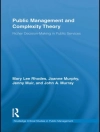With an emphasis on current theories and today′s political and social environment,
Terrorism and Homeland Security concisely and clearly explains the multifaceted subject of terrorism and its impact on homeland security in the United States today. This versatile text grounds the discussion within a historical, legal, administrative, and intellectual framework. The book focuses on providing readers with an understanding of the central challenges, perspectives, and issues in the field through four Parts: a conceptual review of terrorism and its causes; terrorist environments, such as religious or international terrorism; the terrorist trade, including the role of the mass media; and a fourth section that discusses domestic terrorism in the United States and investigates homeland security from both theoretical and organizational perspectives.
विषयसूची
Part I: Understanding Terrorism: A Conceptual Review
1. The Nature of the Beast: Defining Terrorism
2. The Past as Prologue: Ideological Origins and Historical Perspectives
3. Beginnings: Causes of Terrorist Violence
Part II: Terrorist Environments
4. Terror From Above: Terrorism by the State
5. Terror From Below: Terrorism by Dissidents
6. Violence in the Name of the Faith: Religious Terrorism
7. Terrorist Spillovers: International Terrorism
Part III: The Terrorist Trade
8. Tools of the Trade: Tactics and Targets of Terrorists
9. The Information Battleground: Terrorist Violence and the Role of the Media
Part IV: Homeland Security in the United States
10. Domestic Terrorism in the United States
11. Homeland Security in Perspective
12. Homeland Security Agencies and Missions
13. Civil Liberties and Securing the Homeland
Appendix A: Map Resources
Appendix B: National Intelligence Estimate: The Terrorist Threat to the US Homeland
Glossary
लेखक के बारे में
Clarence Augustus “Gus” Martin is a Professor and founding Chair of the Department of Criminal Justice Administration at California State University, Dominguez Hills, where he teaches courses on terrorism and extremism, criminal law, and the criminal justice system. He has served as founding Director of the School of Public Service and Justice. He also served as Associate Vice President for Human Resources Management, Acting Associate Dean of the College of Business Administration and Public Policy, Associate Vice President for Faculty Affairs, and Chair of the Department of Public Administration. He began his academic career as a member of the faculty of the Graduate School of Public and International Affairs, University of Pittsburgh, where he was an Administration of Justice professor. His current research and professional interests are terrorism and extremism, homeland security, and the administration of justice.Dr. Martin is author of several books on the subjects of terrorism and homeland security, including Understanding Terrorism: Challenges, Perspectives, and Issues (Sage, 2025); Terrorism and WMDs: Awareness and Response, Third Edition (with John Pichtel, CRC Press, 2025); Understanding Homeland Security (Sage, 2024); The Handbook of Homeland Security (with Scott Romaniuk and Martin Scott Catino; Routledge, 2023); Essentials of Terrorism: Concepts and Controversies (Sage, 2022); Terrorism: An International Perspective (with Fynnwin Prager; Sage, 2019); The SAGE Encyclopedia of Terrorism, Second Edition (Sage, 2011); Terrorism and Homeland Security (Sage, 2011); and The New Era of Terrorism: Selected Readings (Sage, 2004). He is also author of Juvenile Justice: Process and Systems (Sage, 2005).Prior to joining academia, Dr. Martin served as Managing Attorney for the Fair Housing Partnership of Greater Pittsburgh, where he was also director of a program created under a federal consent decree to desegregate public and assisted housing. He was also Special Counsel to the Attorney General of the U.S. Virgin Islands on the island of St. Thomas. As Special Counsel, he occupied a personal and confidential position in the central office of the Department of Justice; sat as hearing officer for disciplinary hearings and departmental grievances; served as chair of the Drug Policy Committee; served as liaison to the intergovernmental Law Enforcement Coordinating Committee as well as to the Narcotics Strike Force; and provided daily legal and policy advice to the Attorney General. Prior to serving as Special Counsel, he was a “floor” Legislative Assistant to Congressman Charles B. Rangel of New York. As Legislative Assistant, he researched, evaluated and drafted legislation in areas of foreign policy, foreign aid, human rights, housing, education, social services, and poverty; he also drafted House floor statements, Congressional Record inserts, press releases, and news articles; and he composed speeches, briefing materials, and legislative correspondence.Dr. Martin received his A.B. degree from Harvard College, J.D. from Duquesne University Thomas R. Kline School of Law, and Ph.D. from the Graduate School of Public and International Affairs at the University of Pittsburgh.












